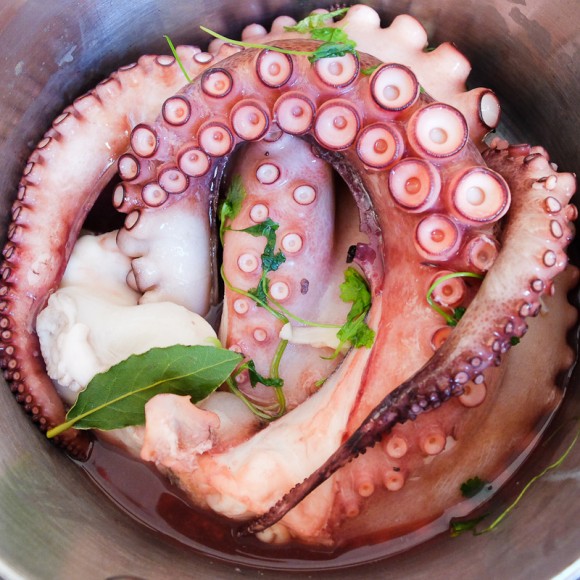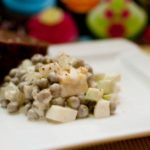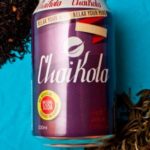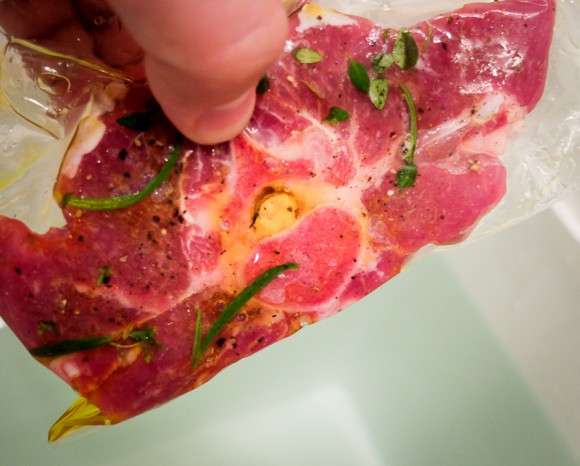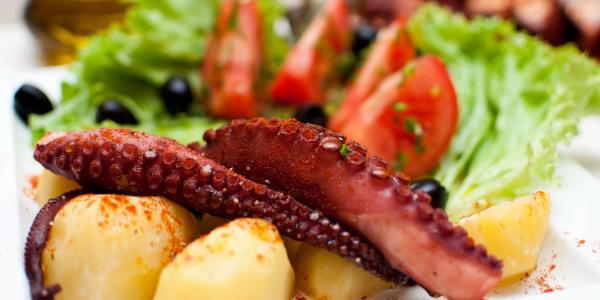 During my stay in Spain, I got a taste of many local specialties, including cooked octopus. This is only one of the ways to prepare it, but by far the most common, both in restaurants, as well as at all kinds of fairs and holidays. It was the latter that gave the name to a dish loved in Galicia, which we will prepare today: pulpo to the fair.
During my stay in Spain, I got a taste of many local specialties, including cooked octopus. This is only one of the ways to prepare it, but by far the most common, both in restaurants, as well as at all kinds of fairs and holidays. It was the latter that gave the name to a dish loved in Galicia, which we will prepare today: pulpo to the fair.
The octopus is a hard-to-reach and expensive commodity, so there is nothing to expect, that we can find it in every supermarket. Its price is usually around 45-50 zlotys per kilogram, but with a bit of luck you can even hit behind 30.
Let us dispel a certain myth among Poles right away (and not only): the octopus is in no way like a fish, and its consistency is not gelatinous. The octopus has its own characteristic smell, which probably will not suit everyone, but this is due to its dissimilarity from that, what we smell in the kitchen every day. The meat is very firm, downright hard, and the only soft part is leather.
In Galicia, the octopus is usually eaten as a side dish, where two or three tentacles cut into rings are served before the main course, stacked on a wooden board, drizzled with olive oil and sprinkled with hot pepper powder. This portion usually costs around 8-10 euro, though there are places, where you can eat it for half the price, for example in the town of O Carballiño, where Festa do Pulpo is held every August, that is, the Octopus Festival.
Ingredients:
- one frozen octopus (it should weigh approx 1200-1400 grams)
- celery root
- two handsome carrots
- fresh thyme (about 30g)
- fresh parsley (about 30g)
- large onion
- 2-3 bay leaves
- allspice
- hot pepper powder
- olive oil
We start by defrosting and preparing the octopus. We cut off the head and, as long as we bought it uncleaned, we remove the ink bag. Turn the head inside out and wash it thoroughly inside.
We can prepare the tentacles in two ways. I cut them off from the middle part, connecting the tentacles to the head (this part is hard, so you have to throw it out later anyway). It saved me having to remove the beak. This way, each tentacle was kept separate from the rest. The second method is to cut the beak and possibly the hardest part connecting the head and tentacles, but without separating the individual tentacles.
Onions, seler, Cut the carrots and herbs and put them in a large pot with boiling water. We also add bay leaves and a few grains of allspice. We let them boil for a while, to let the vegetables release some flavor. If someone has a different set of vegetables and aromatic herbs, can use them in almost any configuration, as long as the beginning of the vegetable stock is formed in the pot. For example, I did not have fresh parsley (nor cut, nor a root), so I used dried.
When the vegetables boil for a few minutes, and the water will be colored, we throw in the octopus. We turn up the gas under the pot like this, to make it all boil again, then reduce the fire, cover the pot and leave it for about 40 minutes. During this time, we can prepare side dishes for the main course – in my case it was boiled potatoes, which in my opinion go perfectly with the cooked octopus.
After 40 minutes, remove the octopus from the burner and take out the tentacles. We can cut them into pieces and arrange them on a wooden board; it is best if the board has a channel at the edges, otherwise we can splash the table. Sprinkle the pieces with olive oil and sprinkle hot pepper powder from the heart, but beware: if we don't have hot peppers, and something stronger, e.g.. chilli or cayenne pepper, it is better to use sweet pepper with a little admixture of the spices richer in capsaicin. The octopus is to be seasoned spicy, but there is no smoking.
If you are not planning to use octopus as a side dish, we can skip the tentacles and just put them on a plate next to the potatoes. Whole, including potatoes, Sprinkle with olive oil and also sprinkle with hot pepper. No other spices are needed, so the opponents of salt should be satisfied.
After the octopus, it will remain intensely maroon, almost borscht-like broth with a pleasant, a vegetable and herbal fragrance with a hint of octopus. It can be successfully used as a base for other dishes, e.g.. for fish soup.

